Primal Gathering is an environmentally, socially, and psychologically regenerative project with a mission to restore people, forests, and ecosystems all over the world. Working with local landowners to understand their needs, we create an educational in-person gathering format where people simultaneously learn mindfulness and communication skills to integrate into their day-to-day lives whilst regenerating and reforesting the land. Leaving both people and places better than how they were found.
Primal Gathering is an environmentally, socially, and psychologically regenerative project with a mission to restore people, forests, and ecosystems all over the world. Working with local landowners to understand their needs, we create an educational in-person gathering format where people simultaneously learn and practice holistic skills to integrate into their day-to-day lives whilst regenerating the land. These skills range from mindfulness, nutrition, communication practices to permaculture, natural building, and reforestation. Leaving both people and places better than how we found them.
Primal Gathering believes that the path to making a monumental positive difference to the environmental world comes from our capacity to change our individual behaviors. Our gatherings are a space to practice and embody regenerative tools and principles so we can support the development of a regenerative culture, starting inside-out. They are also a place to conserve a sense of locality safeguarding local knowledge, values and traditions, through the integration of natural and handcrafted products, and eating off what’s grown locally on the land while promoting a sense of diversity to inspire the cross-pollination of ideas and best regenerative practices between cultures.
A growing global movement shaping the conversation around regenerative living we represent the generation of people who are passionate about learning how to live more sustainably, healthily, and regeneratively. Primal Gathering moves us from thinking about making a change, to taking collective action and maintaining that change with the support of practical tools and community.
Please highlight how the project can be exemplary in this context
CARBON SEQUESTRATION | On average, every human being produces 12 tonnes of Co2 per year. One tree is able, through its lifetime, to offset and store 1 tonne of Co2. By restoring forests through tree-planting actions, Primal is increasing the resilience of ecosystems and helping minimize climate change effects by sequestering excess carbon from the atmosphere. PROTECTING BIODIVERSITY | By planting native seedlings in ecologically appropriate areas we are counteracting soil and biodiversity loss. We plant a diverse mix of native trees and shrubs, helping to restore imperiled species and declining local forest types. WATER RETENTION | By mitigating soil compaction, the ground allows for greater water infiltration and storage, which reduces surface runoff which transports sediment. ZERO WASTE | Through repurposing products, borrowing furniture and decorations from local partners, buying unwrapped, biological foods from local farmers, promoting slow fashion initiatives and green consumption, we are supporting a zero-waste culture, where everything we produce and consume can either be reused or returned safely to nature. CIRCULAR SOCIETY | By hosting co-creative, participatory, skill-sharing, educative gatherings, we are promoting a culture where knowledge is treated as Commons: a resource that belongs to the community, used to increase social and environmental well-being. COMMUNITY DEVELOPMENT | Through community-building activities like Authentic Relating and Non-Violent Communication workshops, we are promoting cooperative, regenerative community cultures based on values of care for each other and the planet. We do so, believing that communities are the building blocks of nature and societies. As such, working with the community structure of living systems can stimulate regeneration across and up all scales. Community action at the neighborhood level can stimulate change at the city level, which can stimulate change at the landscape and bioregional level, and so on.
Please highlight how the project can be exemplary in this context
Natural materials create a visually appealing atmosphere and serve as a way to reconnect people to the natural world. As we slowly emerge out of a post-industrial convenience culture and make our way towards an ecological aware one, many people are still challenged in seeing the beauty and magic that nature embraces. We believe that a renewed sense of awe is created through ecologically aesthetic experiences and can promote people’s desire to protect that which they perceive to be beautiful. These internal shifts can, in turn, encourage the manifestation of external changes such as more ecological attitudes and practices. Primal Gathering focuses on incorporating nature into the fabric of its interior and experiential design by adding elements found on the land: from the use of olive branches recently cut from neighboring farmer's land to lay the foundations to our interiors or clay, stones, and sand to create natural pigments to paint with or forage flowers and leaves as ‘paint’ to express a natural picture of ecological art. This ecological art is interwoven with local artists who are pushing the edges of what it means to create regenerative art through the use of alternative sustainable materials and projects that awaken sustainable awareness in us, by creating a deeper sensitivity between people and the materials we use for creative expression. Not only is their work witnessed in the context of a regenerative gathering but artists are encouraged to further develop environmental artworks in real-time with our participants. This supports overall community education and fosters interdisciplinary connections to ecological issues we all face. A power that only the arts have, to unite people together to share an experience even if they see the world in different ways.
Please highlight how the project can be exemplary in this context
Primal Gathering uses the preservation and restoration of our environment as a common goal to connect people from all kinds of backgrounds, regardless of age, profession, or income. We create an intergenerationally inclusive environment wherein kids as young as four accompanied by their families, senior citizens as old as seventy, as well as people working in a diversity of industries and from various cultural and socioeconomic backgrounds, are brought together by their desire to embody the values and virtues they wish to see in the world. Seeking to make living a more regenerative lifestyle accessible to all, we put at one’s disposal a variety of ways in which people can participate in our events by offering a choice between voluntary, standard, low income, or solidarity tickets. The voluntary position allows individuals to participate in the experience for free in exchange for a few hours of work a day. The low-income ticket is reserved for people that may not have the economic conditions to pay the full value of the operating costs of the event. The solidarity ticket covers these standard costs, however, it also allows for people to contribute more, permitting the creation of low-income tickets. By integrating the full spectrum of ticket prices we are able to properly reward artists and facilitators for their work and contributions to the Primal Gathering experience, disrupting existing gathering models wherein artists are often invited to share their offerings for free, or for a minimal reward like publicity. Outside of our gatherings, we offer free educational content on our website and newsletters, such as blog entries, podcasts, and blueprints to support people with access to different tools and knowledge about how to live more sustainably in their day-to-day lives. This helps develop capacities in individuals and communities to adopt attitudes and practices that can increase health and well-being, as much for them, as for the ecosystems around them.
Please highlight how this approach can be exemplary
Primal Gathering combines the sustainability, inclusion, and aesthetics dimensions, by adopting an educative gathering model, wherein people from all kinds of backgrounds come together to work toward the common goal of protecting that which is beautiful in this world: individual, cultural as well as ecological diversity in an increasingly homogenizing, monocultural social and environmental landscape. When designing our gatherings, we adopt an aesthetic judgment informed by ecological literacy that is not only influenced by how something looks, but by a deeper questioning of how it was made, out of what materials, by whom, and under what conditions. We integrate the regenerative principles of systemic health and well-being at all levels, making sure to leave a positive impact not only on the land and participants but also on team members, landowners, artists, and facilitators involved in the creation of our gatherings. By making accessible the tools and knowledge needed to imbue people with the skills necessary to live more sustainably – through, for example, affordable ticket prices and the promotion of multicultural exchange – we promote inclusivity within the regenerative movement. More importantly, however, we are making sure that the goals of these collaborative efforts are not only externally visible but internally felt. Primal Gathering is exemplary in that it has created a regenerative gathering model that integrates sustainability efforts with individual and community restoration by getting people to engage with mindfulness, conscious communication, nutrition, and arts and culture. The project’s ethos is rooted in a vision of a more sustainable future, wherein human cultures are built around an ethic of care for the planet and the various individuals and communities that inhabit it. As such, we design initiatives and experiences that, in their essence, must preserve the integrity, health, stability, diversity, and beauty of the biotic community.
In the last two years Primal Gathering has environmentally, socially and economically, left a positive, lasting and visible impact in Sintra, Odemira, Ericeira and Abela regions. A key example of us using nature-based solutions and materials to support the physical transformation of a project is Quinta do Rajo, where we started a permaculture garden. In combination with our local natural building partner Live With Earth, we used local clay, stone, and sand to teach people how to naturally build raised beds. After preparing the soil together we then planted 800+ fruit trees and vegetables. As a consequence of our work, €1000+ of revenue has been, and continues to be made as the food grown is now sold to members of their community. Primal Gathering has also regenerated natural ecosystems and prevented a loss of biodiversity through our reforestation action with Traditional Dream Factory in 2021. After surveying the land with our Reforestation partners, Reflorestar Portugal, we assessed the complexities of soil erosion, and created a bespoke intervention plan with a list of native trees selected based on this land's needs. In the space of 3 days, 1000 native trees were planted. This effort alongside an interior transformation using ecological art left a significant impact. Our social impact is also deeply felt, as our gathering focuses on four pillars of care, mindfulness, nutrition, communication and restoration of land to empower its participants to be self-sustainable in their individual lives - equally. When asked ‘how relevant and helpful do you think participating in this gathering was for your life?’ 84.6% of our participants answered that the gatherings were extremely relevant and helpful, and 15.4% very helpful. With 100% of respondents sharing they would come again and with 60% using the words ‘community’, ‘home’ and ‘family’ to describe their experience, Primal Gathering proves to have a profound social impact on our participants' personal lives.
Please also explain the benefits that derived from their involvement.
The philosophy of service is weaved into the fabric of each gathering with one question guiding the creation of each event: how can we nurture ourselves while giving back to our local communities? Every gathering starts with local landowners to understand their regenerative needs. These needs vary from wanting to revive soil fertility, increase the biodiversity of the land, to starting a permaculture project. To do this, we work with local regeneration experts, to adapt common permaculture knowledge to local necessities. Creating bespoke plans to support their regeneration goals, we create a program that intertwines fulfilling their goals with socially and psychologically regenerative practices, led by a combination of local and international practitioners to support our participants' desires for learning. Having a variety of people from differing backgrounds ensures that, like plants in nature, many will thrive through the cross pollination of ideas and exposure to local culture. This is mirrored in the workshops we curate. For example, in 2021 Da lua herbals, a sustainable and handcrafted project based in Portugal shared with us how to create incense using local plants, and Supernaturae a project that develops fashion pieces using locally available materials and traditional craft techniques, taught us how to naturally dye our clothes with avocado pits, and eucalyptus leaves. We also invite market sellers and artists who continuously share natural, or handcrafted products that conserve the locality’s living culture, whilst safekeeping local knowledge, values, and traditions. This philosophy is embedded not only in what we sell but in what we cook, through using locally grown food and recipes that are both locally sourced and ancestrally passed down in our various chef's lineages. Incorporating local cultivators, creators and producers of both products and food, introduces those not local to the region or area to learn about a culture that they didn’t know of.
Annually, 1 person commits suicide every 40 seconds due to depression, with depression becoming the leading contributor to the overall global burden of disease. Individualistic and competitive social and occupational environments have been associated with serious mental health issues such as anxiety, low self-esteem, and a lesser sense of belonging, phenomena that have only been exacerbated by the unwelcome levels of social disconnection that have been imposed by the COVID-19 pandemic. The climate crisis is also known to be causing an overwhelming sentiment of anxiety, especially among children and adolescents. A study found that 59% of respondents across the world were very or extremely worried about climate change, 84% being at least moderately worried. More than 50% reported feeling sad, anxious, angry, powerless, helpless, and guilty. Connecting to community and spending time in nature, however, have been shown as a potential antidote. Communities are vital sources of support during a crisis, providing collective contexts for shared identity and solidarity that predict supportive, prosocial responses. Numerous studies suggest that combining the positive effects of being in nature with communal and outdoor activities can severely reduce symptoms of anxiety, stress, and improve focus, creativity, physical health, confidence, and self-esteem. Primal Gathering builds on these known solutions to create spaces that support people’s mental health by connecting them to local, intergenerational communities as well as to the land around them. We create a restorative, collaborative program that focuses on strengthening relationships and a sense of belonging, as well as aims to empower people by getting them to engage in actively protecting the planet, contradicting the powerlessness we can so easily feel in face of the numerous threats ahead. We understand that the regeneration of nature cannot be lasting unless the regeneration of people and communities accompanies it.
Recent years have witnessed a growing convergence between the expanding festival scene and environmental concerns. Festivals and events are known to be grossly unsustainable and excessively consumptive, having many negative impacts if they do not make going green a priority. These impacts include creating thousands of tons of waste, using exorbitant amounts of electricity, damaging lands due to overuse, and increasing CO2 emissions. In contrast to this standard, Primal Gathering leaves a positive trace on the land it is on. Not only does it encourage and teach greener behavior through workshops and educational activities, but it also integrates an element of land regeneration through reforestation or permaculture. Moreover, it creates jobs and economic returns for local people, like local holistic practitioners, artists, food growers, and landowners, thereby contributing to the local economy and the community’s well-being. Primal Gathering is also the first organization to combine ecological restoration with mindfulness and the arts and culture. While many other initiatives target these issues and practices individually, we combine them together to create an event model that is able to nourish individuals as they nourish the land. The combination of gathering as a community and acting together in service of the land has shown to be immensely empowering to people, as they feel incredible accomplishment for engaging in meaningful, purposeful, environmentally-positive work while having a fun, wholesome time. Finally, Primal Gathering is innovative in that it functions internally in ways that support the team’s flourishing and well-being, counteracting conventional work cultures that prioritize workers’ output above the workers themselves. Through the adoption of horizontal models of management, we encourage the flattening of hierarchies within the organization and motivate more active, collaborative, and participatory engagement.
Please provide clear documentation, communication of methodology and principles in this context.
When participants were asked, “would you be interested in hosting a Primal Gathering close by to where you live?" 84.6% responded yes, they would like to learn more about how to host one, demonstrating both the excitement left by the experience, as well as how easily replicable participants perceived Primal Gatherings to be. Our gatherings are built upon four pillars of care - mindfulness, nutrition, communication, and restoration of land - all of which are used to guide our actions in order to align these to the virtues we seek to embody and to empower our participants in becoming more self-sustainable. Each gathering incorporates a daily routine embarked on by all participants together to support habit change and build resiliency. Participants begin each day with a mindfulness practice, incorporate vegan and nutritional components into their diet, practice Authentic Relating as a conscious communication tool to support connection, and collaboratively set out on acts of service to their natural surroundings. A model of locality that is easily transferable to anywhere else in the world, so much so that Primal Gathering is in the midst of developing a UK version in 2022, and a global ambassador program to encourage representatives now in New York and Berlin. Primal Gathering uses the ‘Community as a Practice’ model developed by the organization’s founder, Nicole Bosky, to guide its work. Inspired by the metaphor of building a home, this model is broken down into the following three parts. Honesty as the foundation, which keeps our intentions in check and helps develop compassion. Integrity, which holds everything together upon the base of the house, where trust is built through consistency, commitment and discipline. Finally, service as our offering. Once a home is properly anchored into the ground, it is safe to open its doors. Leaving space to self-initiate without impeding on one’s own commitments and being of service without any interest of gain for self alone.
Since 2020, Primal Gathering has put life at the center of every decision and vehemently integrated the environmental needs of every piece of land we work with and on. This is done through collaboration with local landowners who see themselves as stewards of nature, and participants who are eager to learn more sustainable ways of relating to themselves and their environmental surroundings. The philosophy of service is weaved into the fabric of each gathering with one question guiding the creation of each event: how can we nurture ourselves while giving back to our local communities?
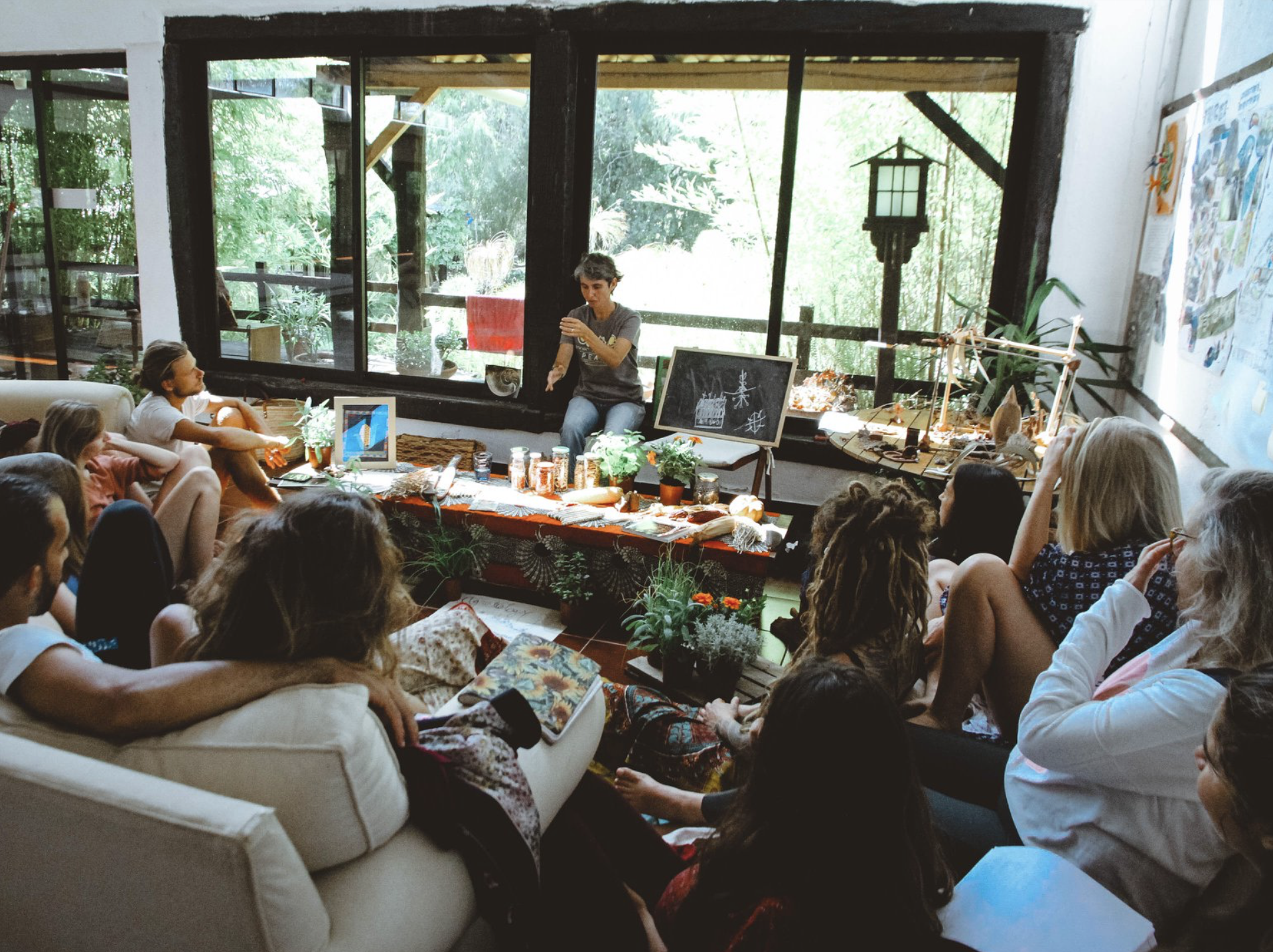
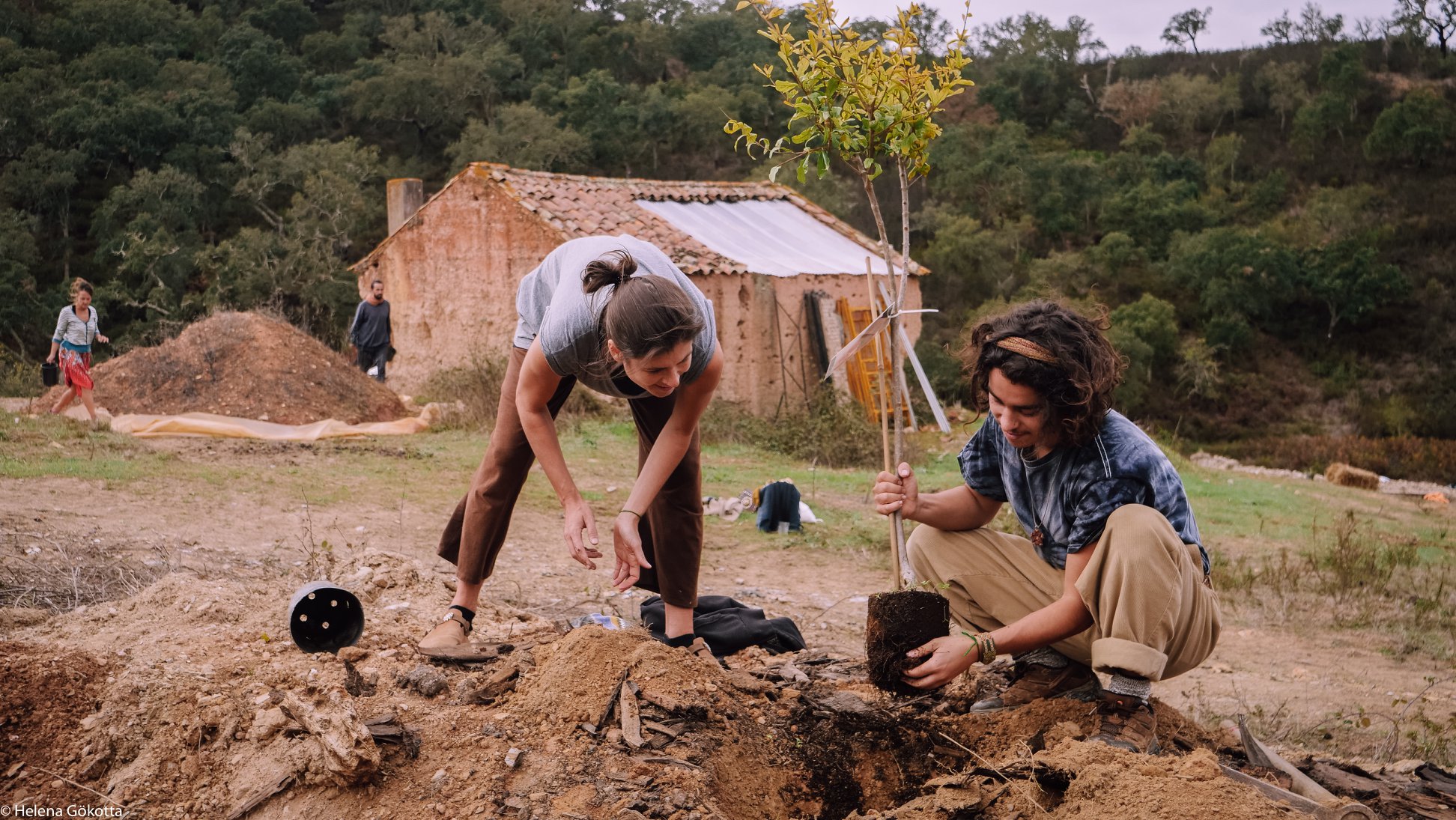
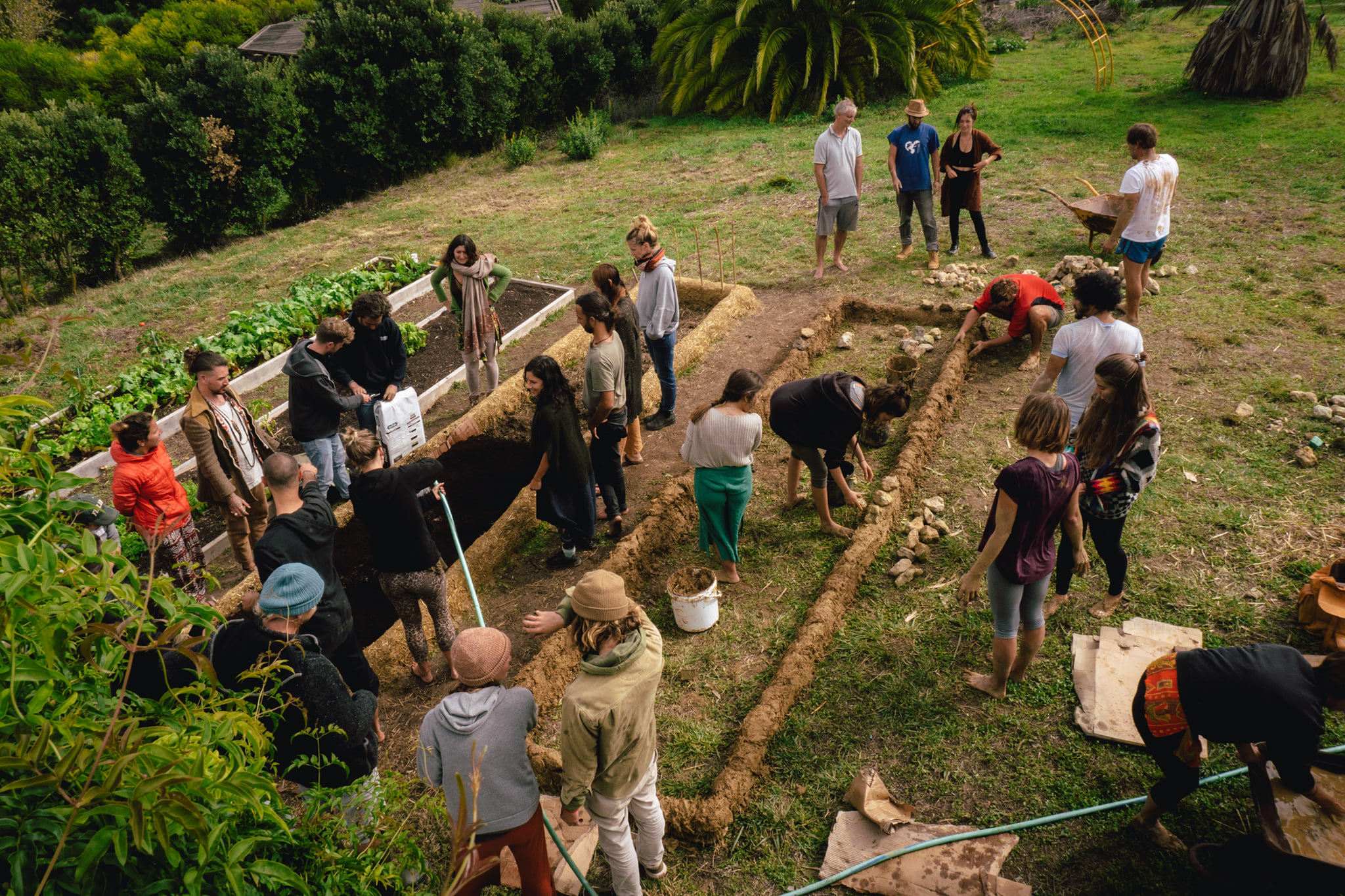
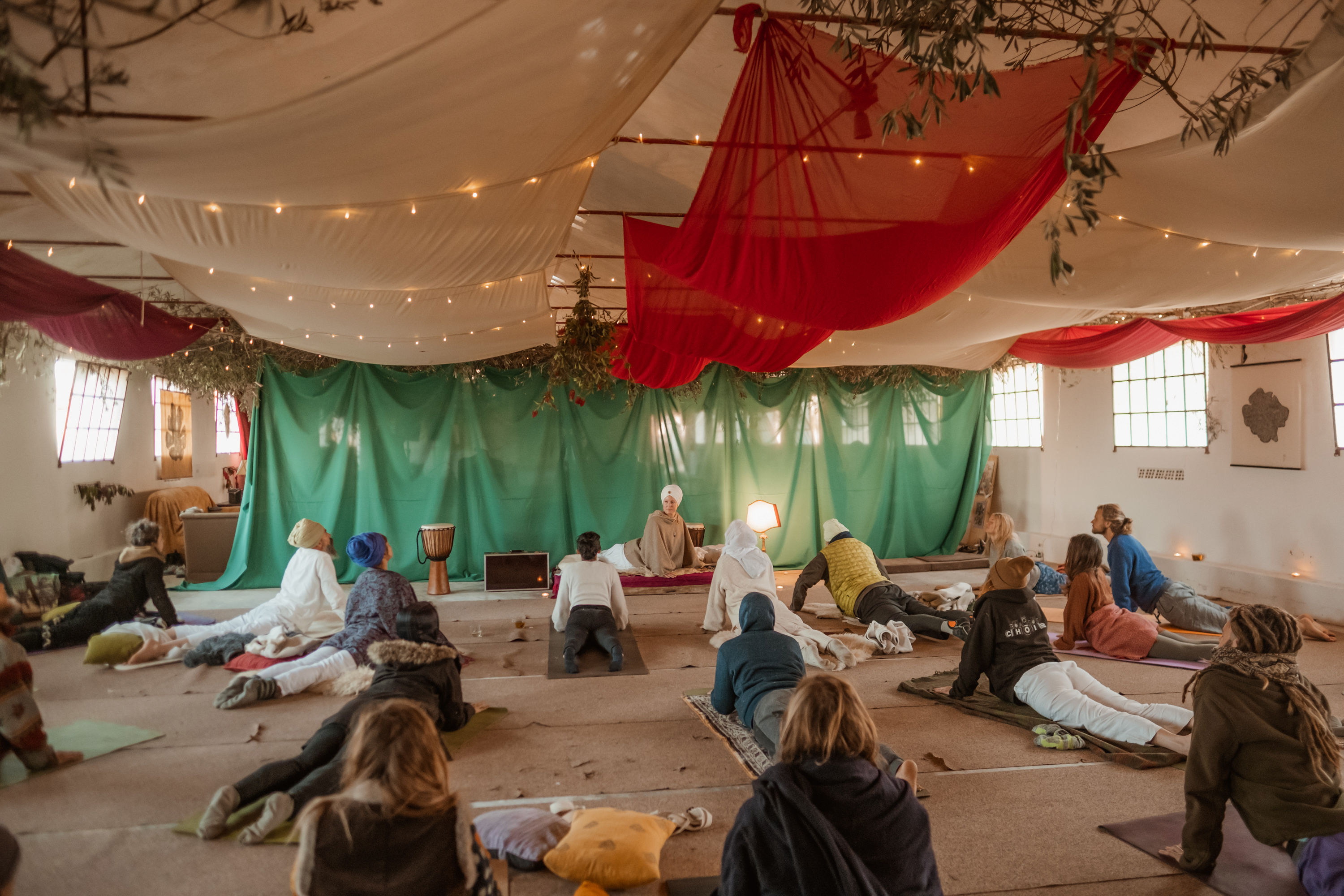
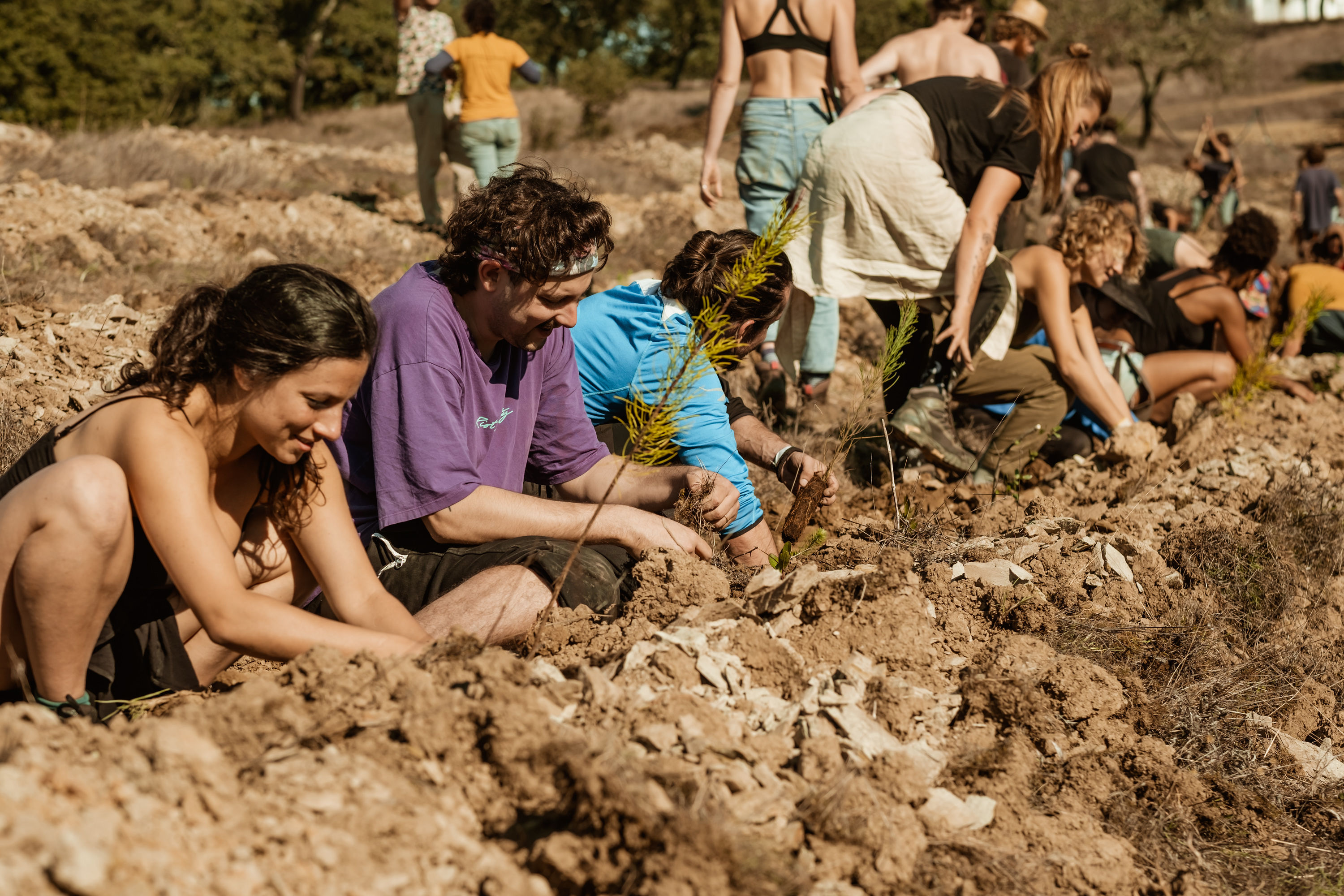
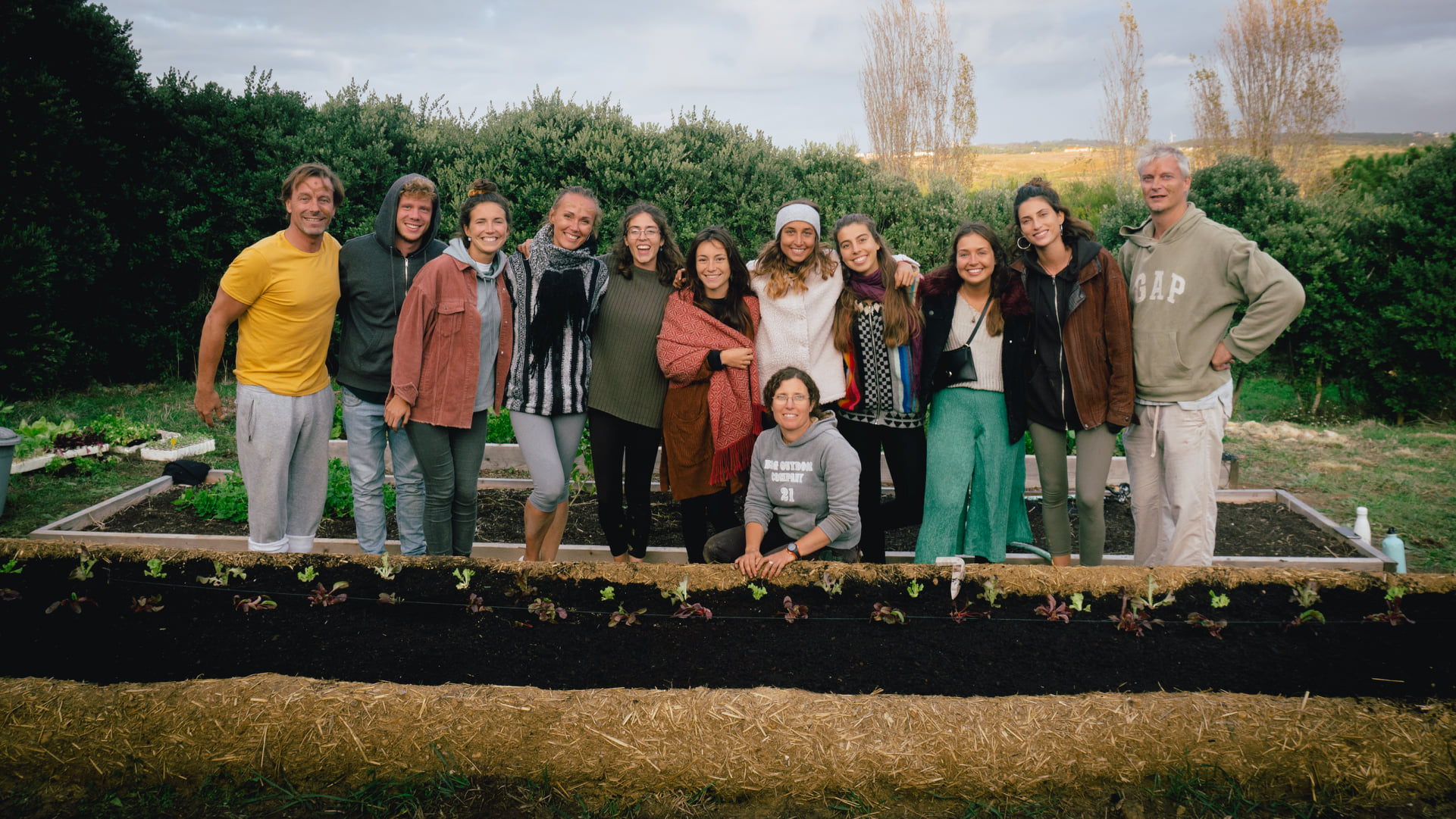
@Primal Gathering , 2021
Content licensed to the European Union.